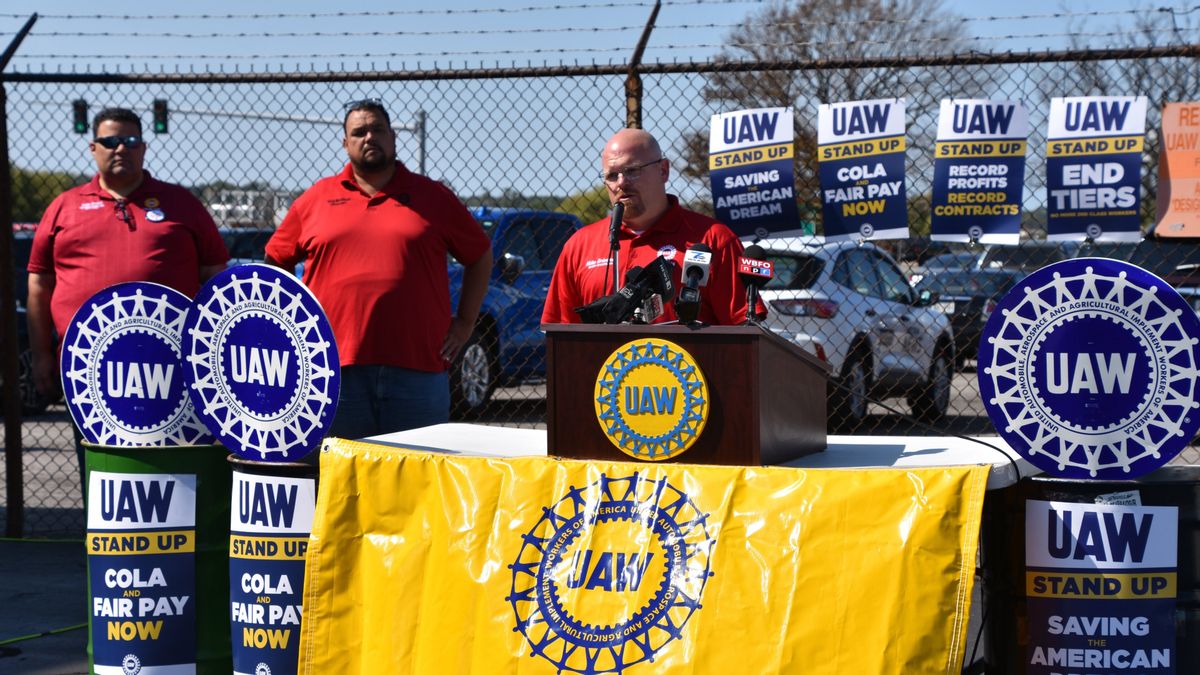JAKARTA - Three American auto giants, known as Big Three - Ford, GM, and Stellantis - have laid off nearly 2,700 employees simultaneously.
These three automotive manufacturers blamed the United Auto Workers (UAW) strike as the cause and stated that this situation was difficult to overcome because the automotive industry was closely related to each other.
It is known, on Wednesday, September 20, General Motors (GM) confirmed that they must terminate employment of about 2,000 people working at the Kansas City plant. The auto giant explained that this action was necessary because the impact of the UAW strike had spread widely, and there was no job left for American workers producingoks and Caddy XT4.
Furthermore, GM, once saved by American taxes, stressed that they cannot provide other unemployed benefits to affected workers.
On the other hand, reported by Nbcnews, September 21, Stellantis announced the termination of employment in 2013, Ohio, affecting 68 workers for now. However, they emphasize that more than 300 people could experience the same fate. The group consists of 16 brands, including Dodge, Ram, Jeep, and Chrysler, and the reasons for this termination due to storage issues or problems when too many items or components are produced or ordered and it is difficult to store everything efficiently.
However, Ford is the first to take this step. Last week, Ford notified nearly 600 Michigan Assembly factory workers that there is no longer work for them. Affected workers are usually responsible for stamping and body construction.
SEE ALSO:
This decision may seem an act of retaliation against UAW, but could also worsen the condition of GM, Ford, and Stellantis.
Initially, this termination of employment began for 12,700 workers who refused to work. Then, an increase of 2,700. This number could increase to 3,000 if Stellantis continued to terminate employment at the Kokomo factory, Indiana.
In fact, UAW had started negotiations with Big Three at the end of July. These demands reflect UAW's efforts to improve working conditions and benefits for automotive workers or ensure justice in the automotive industry.
The content of the demands includes a 40% increase in wages per hour over four years, a massive reduction in the number of temporary workers who generally have fewer work rights, a four-day working week (with remaining eight working hours), a traditional pension return, and the amount of wages participating in inflation.
The English, Chinese, Japanese, Arabic, and French versions are automatically generated by the AI. So there may still be inaccuracies in translating, please always see Indonesian as our main language. (system supported by DigitalSiber.id)











